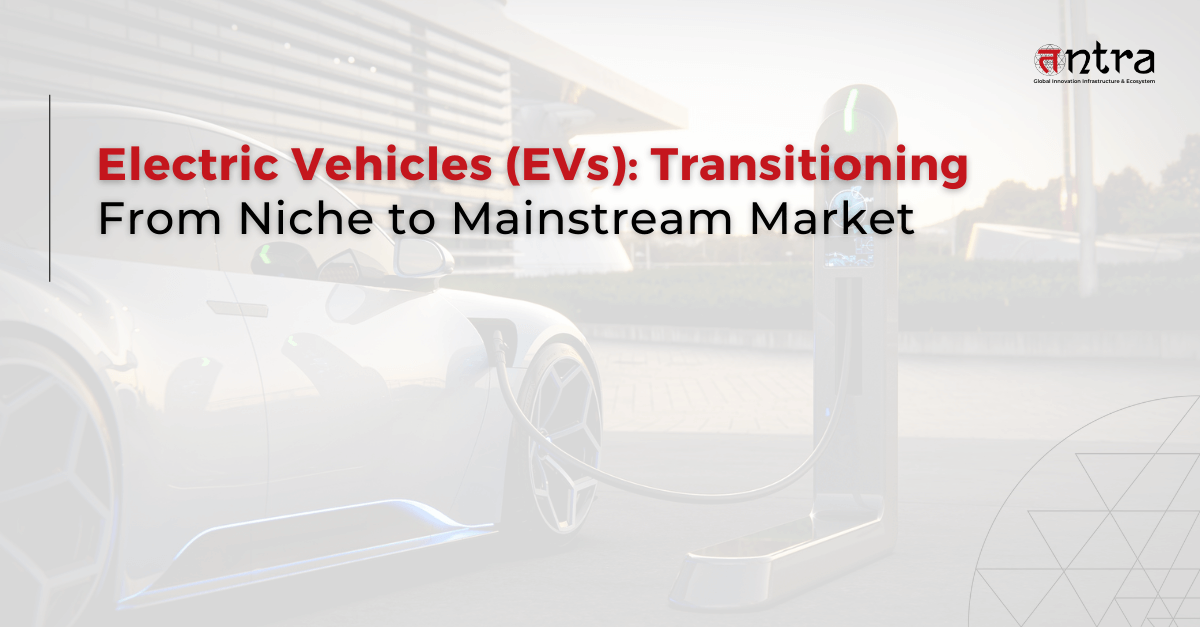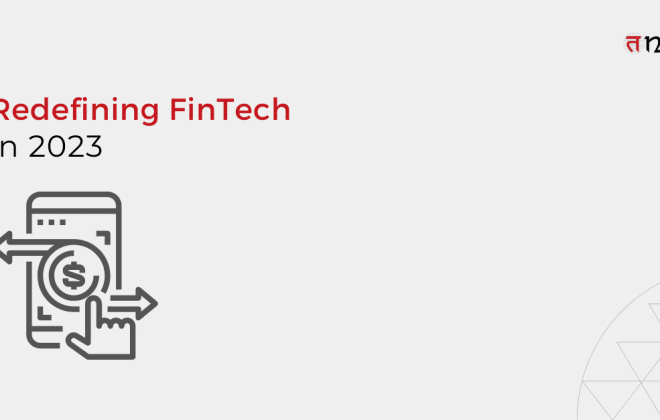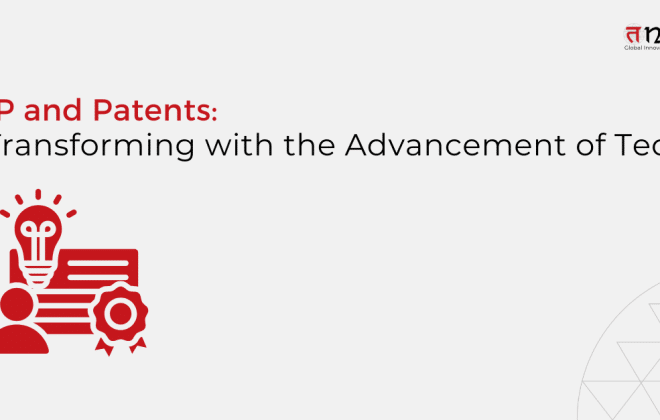
Electric Vehicles (EVs): Transitioning from Niche to Mainstream Market
Table of Contents
ToggleThanks to their extended range, quicker charging times, and growing customer trust in eMobility technology, electric cars (EVs) are quickly making the shift from niche to mainstream. According to the EY Mobility Consumer Index, interest in EVs is increasing, with 52% of prospective customers considering them compared to 30% in 2020. Obstacles including high upfront prices and inadequate infrastructure still exist as the EV market grows. To close pricing differences and meet demand, significant investments in EV infrastructure and manufacture are needed; by 2030, millions more charging stations will be needed worldwide. Additionally essential to improving user experience and promoting widespread EV adoption are data management and interoperability. Continue reading to learn more.
Our client’s rise to prominence in the EV charging industry is evidence of Tntra’s innovative thinking. They emerged as a key connection in the EV infrastructure and successfully handled interoperability difficulties by creating a Hub and Spoke strategy. It is based on the ESP architecture.
Tntra integrated the Enabling Tier, which offered a safe and dependable foundation for data interchange. It establishes the essential structure and core competencies. The Service Tier, which was developed especially for the Japanese market through localized content, strategic alliances, and a wide range of Electric Vehicles (EVs) products, was the cornerstone around which this foundation was constructed. It was responsible for the design and interaction with peripheral services within the broader ecosystem. We built this upon the Enabling Tier and focused on features tailored to the specific needs of the respective market.
Through the use of AI for thorough profiling, pertinent content recommendations, and optimized charging paths, the Personalization Tier improved user experience even further. This tier provides a framework for tailoring user experiences and content to match the unique preferences and requirements of the last-mile, addressable user base.
Integrity between different brands and stations was guaranteed by key differentiators like openness to standards like OCPP and eMIP, while our client’s impartiality promoted cooperation and confidence among stakeholders. Continuous platform enhancements and infrastructure optimisation were made possible by data collection and analysis, and a smooth experience was ensured through localisation efforts that addressed Japanese language, cultural preferences, and payment methods.
Through interactive features and events, Tntra’s emphasis on community building connected EV users, operators, and other stakeholders, and played a vital role in this regard. All things considered, Tntra’s innovations have not only made our client’s platform future-proof, but they have also raised the bar for the industry in terms of developing an ecosystem of EV charging that is user-centric, effective, and sustainable.
Notably, the Addressable User Market (AUM) has grown by approximately 334.5% since graduation from Incubation. Additionally, we have secured investments and partnerships with some of the key players in the market.
The Rise of Electric Vehicles
Over 875,000 new full battery electric vehicles (BEVs) have been sold throughout the European continent since the start of 2024.
Even though nearly 80% of European auto buyers who participated in our poll said they planned to purchase an EV in the future, 22% of them still had doubts about them.
As a result of rising demand and advancing technology, the EV technology market is expected to expand fourfold by 2026. Global yearly income is predicted to reach $1.047 trillion by 2026, exceeding $1 trillion.
Bringing EVs from Niche to Mainstream Market
Electric vehicles are becoming increasingly appealing and in demand. Longer range, faster charging times, and more vehicle options are luring customers in. Additionally, their familiarity with eMobility technology is growing, which gives them more confidence. According to the EY Mobility Consumer Index6, 52% of participants are inclined to buy a fully electric, pure hybrid, or hybrid car as their next purchase, which is an increase from 30% in 2020. For the first time, the scales are now in favour of electric vehicles. In 2022, the percentage of people who preferred fully electric cars tripled, from 7% in 2020 to 20%.
Over the next three to four years, they will expand into many more categories, where they are currently present in a few. It’s difficult to compare costs generally. Depending on how future petrol prices evolve, our research indicates that over a ten-year period, EVs outperform ICE cars in terms of lifetime expenses. However, the higher initial cost of an EV turns off a lot of buyers.
The impending industrialisation of EV manufacturing is the next big thing. The traditional automakers’ investment will result in a large reduction in unit costs and a massive scaling up of production volumes over the next several years, closing the price gap.
Infrastructure Accessibility
In the absence of a public network of fast chargers for long-distance drivers, those in need of a quick top-up, and drivers who are unable to charge at home or at work, EV adoption will come to a standstill.
For instance, according to EY, 2.4 million private office chargers and 2.8 million public and destination charge points would be required in Europe by 2030 to keep up with the EV industry’s rapid uptake. That translates to the need for 670,000 new charging points to be built annually, or 13,000 every week, to get close. By 2025, there will be more than 400,000 public charging stations required in the US; by 2030, there will be more than 1.1 million.
Removing regulatory obstacles, facilitating easier access to land for infrastructure, and expediting the local government permitting process are all necessary for a quick and effective deployment. Utilities must, in the end, provide more prompt grid connections. In addition, infrastructure needs to be dispersed fairly in the areas where people live and work.
Data and Digitization
Mass data generation from millions of EV niche will provide a new problem for road transport. Resolving issues with data storage, ownership, usage, and regulation is necessary to enable improved eMobility services and revenue.
The ecosystem links corporate infrastructure, buildings, energy, and EVs and chargers. Data abounds in it, allowing for more accurate estimates of infrastructure requirements. It can help improve comprehension of grid networks and guide decisions about the integration of renewable energy sources. Data can be utilized by customers for software product engineering services to customize goods and services to meet their specific requirements.
Once data is digitally formatted, interoperability becomes possible for EV niche drivers. Customers’ confidence and support for EVs are increased by being able to pay for charging, roaming, and connecting wirelessly in a simple, safe, and convenient manner. Enhanced interoperability necessitates equitable and transparent data access criteria in addition to open, interconnected platforms for data sharing.
In order to facilitate connections between EVs, charging point operators (CPOs), and eMobility service providers, open protocols must be adopted and harmonized. And to do that, the players’ ecology must set aside rivalry in favor of the shared objective.
Final Thoughts
Our client’s rise in the EV market demonstrates Tntra’s innovative nature and its dedication to transforming eMobility. Tntra has raised the bar for the sector by solving interoperability issues with a thorough Hub and Spoke approach and concentrating on user-centric, locally relevant solutions. A progressive strategy is demonstrated by the incorporation of AI for customized user experiences along with a strong framework for data protection and system integrity.
Our client is positioned as a key actor in creating an EV ecosystem that is sustainable, efficient, and accessible as EV adoption soars and infrastructure demands rise. This is made possible by Tntra’s technologies. This all-encompassing approach not only makes their platform future-proof, but it also moves the sector as a whole closer to a future with greater connectivity and user-friendliness.
If you want to make your mark in the EV industry, contact Tntra software product engineering company. Our work with the EV company is proof of elevating the performance of companies in the sustainable sector to the next level.





